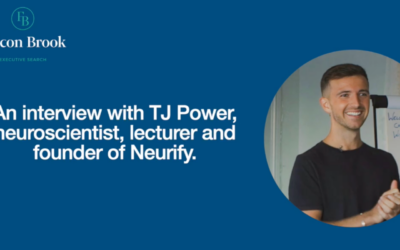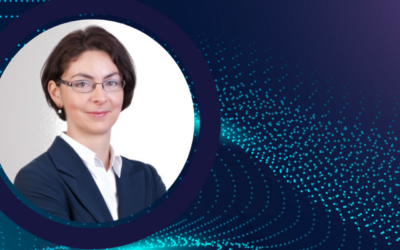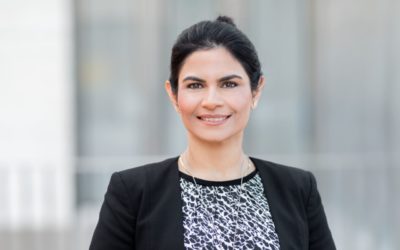It’s been a busy year for Nonye Adebanjo, Vitol’s Head of HR for much of EMEA. She joined the company a year ago after rising rapidly through the ranks at Goldman Sachs, where she started as an intern.
We caught up with her to discuss the ever-expanding agenda for human resources in a time of enormous change.
Falcon Brook: We are fascinated about your decision to move into the energy sector after 10 years in finance. What was your motivation?
Nonye Adebanjo: For me it is the attraction of shaping a rapidly evolving industry in terms of the energy transition and the role that energy companies play in society. I was in the middle of the energy producing world growing up in Nigeria. In fact, my mother was a senior executive at the then national electricity company. Even so, I had to answer the question – why work for a global energy company? It is a great opportunity.
Falcon Brook: What are your perceptions of how energy companies are addressing diversity?
Nonye Adebanjo: It’s very much the beginning of the journey, and what is exciting is the commitment that I am seeing from all sides of the industry. It’s harder to find senior women in energy than in finance. It’s an industry problem. Finance companies put the measures in place like internship programmes for women a long time ago. So, some banks now have gender parity in terms of their graduate intake. While we don’t currently run a graduate programme as banks and other competitors do, we aspire to move the needle on gender parity for entry level hires and ensure they progress into commercial seats over time.
Falcon Brook: What are some of the key solutions to achieving gender parity?
Nonye Adebanjo: We need to expand the talent pool. It’s not about poaching a woman from a different company or sector. We need to encourage young women in school to study maths and science. Grassroots outreach is required to influence the STEM agenda at university and get more women into STEM related careers. It’s up to us to show what the opportunities a career in energy has.
Falcon Brook: What made you decide to specialise in HR?
Nonye Adebanjo: It’s people that make the difference, and the ability to attract and retain the smartest people is what differentiates an organisation. When I began exploring opportunities in banking, I found my conversations with recruiters and HR specialists fascinating. In an HR seat you are helping to influence career journeys and you can have a direct impact on people’s lives. I can get people their first job and help manage that experience from the beginning. The breadth of what you see and learn is inexhaustible.
Falcon Brook: We hope it’s ok to ask about your experiences as a black woman working in finance and now in energy. Are you seeing positive change and how would you advise business leaders wanting to attract senior talent like you?
Nonye Adebanjo: I was hoping that we would cover this topic because it poses such important questions around the experience of ethnic minorities in society and the workplace.
I grew up in Nigeria where being black was the majority and so how I contextualise being black in society has been shaped by that majority experience rather than my minority experience in the workplace.
I expected to be in the minority when I moved to the UK to study and subsequently work, so I found uniqueness. I was the only black woman in the department for a few years in my first job. I found power in being the reference point and helping to educate and demystify some of the preconceived ideas around black professionals and black people. I would have liked to see more people who looked like me at work. Equally, I had many great mentors and sponsors from many different backgrounds.
I recognise that my experience is not always familiar to many black professionals and know of friends and colleagues who have had quite the opposite experience.
There is still a long way to go for many organisations in building an inclusive work environment where people feel that they can truly be successful regardless of their ethnicity and backgrounds. It’s important for organisations to proactively aid advocacy through people who have the resource and access to influence decisions that impact career pathways for diverse employees whether that be through hiring or promotion opportunities.
Falcon Brook: How do you see the HR function evolving, especially in an international role?
Nonye Adebanjo: So much of HR is about driving change. That’s interesting as the role varies around the globe. In the UK HR is a very forward-thinking and advisory function in a business. HR is seen as a trusted partner and part of the core value proposition. Customers want to understand our strategies for training, learning, DEI and succession planning. HR is now part of the commercial conversation.
Staff wellbeing is a growing focus, juggling employee wellbeing at work and at home, introducing strategies to bolster mental health, rest, resilience, and time off to look after dependents.
Falcon Brook: Do you see this changing the conversation with candidates?
Nonye Adebanjo: Absolutely. So many factors beyond the financial influence how businesses retain their best people. Lived experience in an organisation shapes commitment, especially how businesses help people through difficult personal experiences.
Employees want purpose. The labour market is a huge stratum of our society. The work being done to improve social mobility and increase representation of ethnic minorities, women and LGBTQ communities to get more talent into organisations has a big impact on investments and communities.
Falcon Brook: Tell us about some of your current areas of focus since joining Vitol?
Nonye Adebanjo: Diversity is a major priority and Vitol is creating its own space and identity in an industry that is at the beginning of a diversity journey. We’re continuously reviewing our strategies to support women and minorities through different life stages and to increase representation in our commercial seats.
I want to focus on the employee experience, from the new joiners, training, mentorship, and creating space for interaction outside of their teams. Coming out of the pandemic there has been a craving for connection. How do we make sure that people who joined in the last two years really ‘joined’ us? How do we make sure they have exposure and connection?
Falcon Brook: And presumably the energy transition is changing career development?
Nonye Adebanjo: Exactly! People who have been working in traditional hydrocarbons want to know what the future holds for them. People being recruited from outside the industry need exposure to bridge their understanding. We need to tell a positive story about the energy sector so future talent sees this as an industry that helps the planet whilst achieving commercial success. It needs to be a credible narrative for people who have big questions and want to work for an organisation and an industry with equally ambitious goals.



